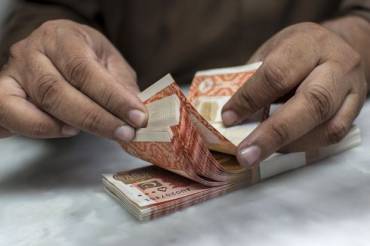The Federal Board of Revenue (FBR) is under news ever since the government of Pakistan Tehreek-e-Insaf (PTI). FBR is responsible for tax regulations and handling economic affairs of Pakistan. The powers of FBR officials have aggrandized in order to stabilize the economy and impose taxation.
to implement file returning, assessments making, seeking an automatic interchange of information from other nations and collect information of taxpayers requested by another nation under the realm of the tax treaty.



The Federal Board of Revenue (FBR) has published SRO 744(I)/2019, bestowing upon the officials of the Directorate General of International Tax Operations, the powers of the government to use powers and do duties under the Income Tax Ordinance 2001. The Directorate General of International Operations has become thoroughly functional for the foisting and reimbursement of taxes from unrevealed offshore goods and assets owned by Pakistanis overseas and to communicate undeviatingly with overseas tax authorities for the transfer of information.
Muhammad Ashfaq Ahmad, Chief International Taxes FBR, an experienced tax officer with the worldwide knowledge of tax laws, is serving as Director General of the Directorate General of International Operations. The Director-General of International Taxes Operations shall have authority over people or group of persons doing business or living in regions of Pakistan.
Read Also: The FBR Has Announced New Taxes On Marriage
The Federal Board of Revenue (FBR) has also empowered Directors of International Tax Operations, Additional Director of International Tax Operations and Assistant/Deputy Director of International Tax Operations of Karachi, Islamabad, Lahore, Peshawar, Multan and Quetta to utilize special powers of the Income Tax Ordinance 2001.
The Director-General of International Taxes Operations can initiate a tax treaty, a tax information transfer agreement, a multilateral conference, an inter-official contract or related agreement. In addition, he may devise a policy to avoid double tax or for the transfer of data, for the restriction of financial dodging or evasion of taxes, including the automatic transfer of information under the umbrella of taxes on income under Income Tax Ordinance or some other laws enforced in the country.
Under a tax treaty, the Director-General of International Taxes Operations will have the authority to gather and get the information requested by another nation.



Source: Wsj
The Director-General of International Taxes Operations shall be authorized to exercise anti-evasion terms under chapter eight of Income Tax Ordinance 2001. The Director-General of International Taxes Operations will have the power to administer the controlled foreign companies. He can use powers concerning vague income or goods.
The Director-General of International Taxes Operations shall be authorized to compel filing of accounts and legislating or changing appraisals under Chapter ten of the Income Tax Ordinance 2001. He shall be authorized to transfer powers or functions assigned to the Commissioner under this Income Tax Ordinance 2001 to any officer of Inland Revenue.
While making any modification, the Director-General of International Taxes Operations can discover the origin of income and the sort of any amount.
The Director-General of International Taxes Operations shall be authorized to use powers for characterization of earnings. For the objectives of managing liability to tax, the Director-General of International Taxes Operations can characterize a trade or a part of a transaction if it was a part of a tax evasion scheme.















